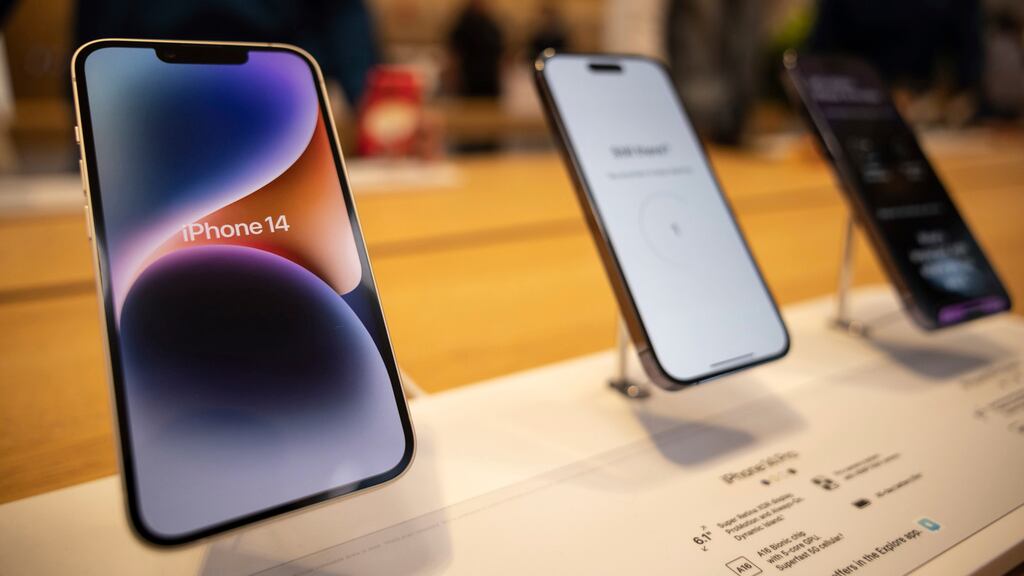The government of Donald Trump announced that he will exclude electronic devices such as smartphones and laptops from “reciprocal” tariffs, a measure that could help keep prices of popular consumer electronics products that are not usually manufactured in the United States low.
PUBLICIDAD
The announcement would also benefit major technology companies such as Apple and Samsung and chip manufacturers like Nvidia and sets the stage for a likely rebound in tech stocks on Monday.
PUBLICIDAD
It is the most recent tariff change by President Donald Trump’s government, who has made several twists in his massive plan to impose tariffs on products from most countries.
Which products are excluded from Trump’s tariffs?
The Customs and Border Protection Office indicated that items such as smartphones, laptops, hard drives, flat-screen monitors, and some chips would qualify for the exemption. Machines used to manufacture semiconductors are also excluded. This means they will not be subject to the current 145% tariffs imposed on China or the 10% base tariffs elsewhere.
The exemption seems to reflect that Trump understood that his tariffs on China probably will not shift more manufacturing of phones, computers, and other devices to the United States in the short term, despite the government’s predictions that the trade war would push Apple to manufacture iPhones in the United States for the first time.
But that was an unlikely scenario after Apple spent decades building a finely calibrated supply chain in China.
Furthermore, it would take several years and cost billions of dollars to build new plants in the United States, and then confront Apple with economic forces that could triple the price of an iPhone, threatening to torpedo sales of their flagship product.
Trump’s tariffs had damaged the “loyalty” of technology companies
Trump’s decision to exempt the iPhone and other popular electronic products manufactured in China reflects the similar relief he gave to those products during the trade war of his first term in the White House. However, Trump began his second term apparently determined to impose tariffs more broadly this time, triggering a collapse in the market values of Apple and other tech giants.
The turmoil hit the stocks of the “Big Seven” in technology: Apple, Microsoft, Nvidia, Amazon, Tesla, Alphabet, Google’s parent company, and Meta Platforms, Facebook’s parent company. At one point earlier this week, the combined market value of the Big Seven had fallen by 2.1 trillion, or 14%, since April 2 when Trump revealed widespread tariffs on a variety of countries.
Some of the losses were alleviated last Wednesday when Trump paused tariffs outside of China, reducing the lost value in the “Seven Magnificent” to 644 billion dollars, or a decrease of 4%, since April 2nd. Now, the stage is set for another technological surge on Monday when trading resumes in the US stock market, with Apple likely leading the way as iPhones manufactured in China continue to be the company’s biggest revenue generator.
The exemption for electronics should also alleviate consumers’ concerns that tariffs on China would result in steep price increases on smartphones and other devices that have become essential tools in modern life.
It is the type of friendly treatment that the industry was envisioning when Apple’s CEO, Tim Cook, Tesla’s CEO, Elon Musk, Google’s CEO, Sundar Pichai, Facebook’s founder, Mark Zuckerberg, and Amazon’s founder, Jeff Bezos, gathered behind the president during his inauguration on January 20th. That united show of loyalty reflected the hopes of the big tech companies that Trump would be more accommodating than the government of former President Joe Biden and would help propel an already booming industry to even greater heights.
